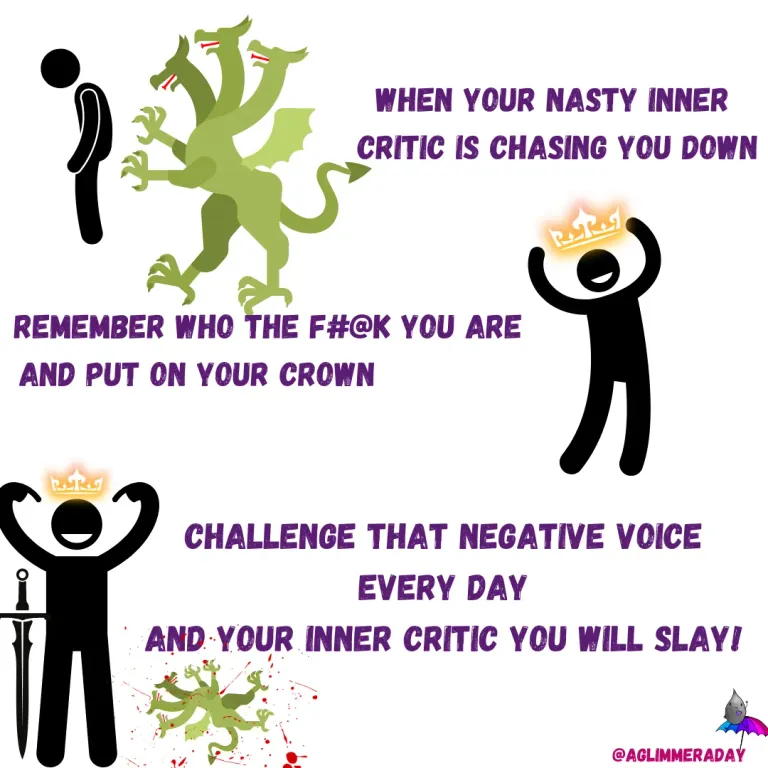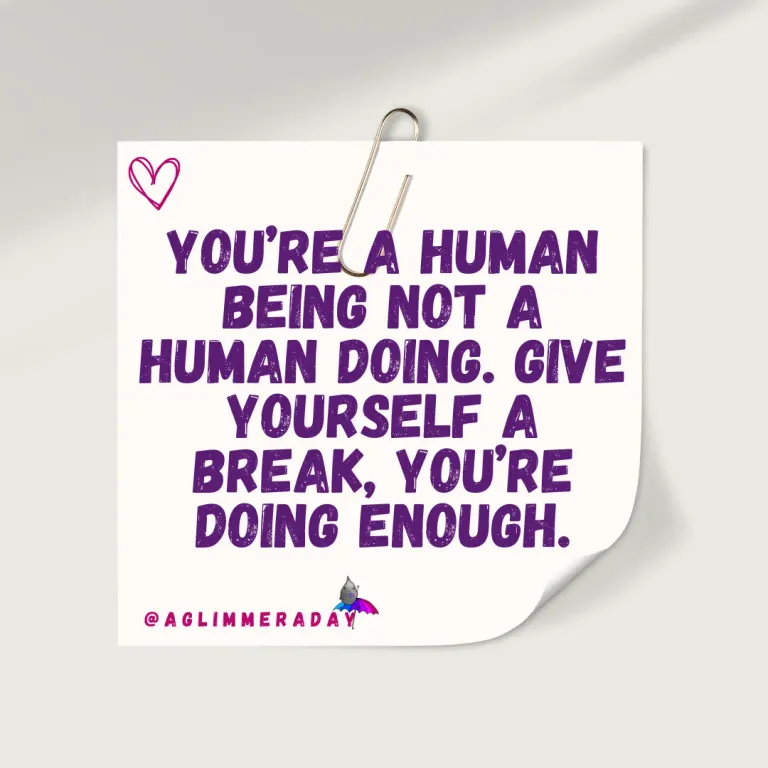Turn Down the Volume of Your Inner Critic
Unfortunately by the time we reach adulthood and probably long before, most of us will have experienced that little voice inside our heads that questions our abilities and decisions - the notorious inner critic. The inner critic loves to play mind games, playing into our deepest insecurities and fears. It can affect how we go about our daily lives and can even significantly impact our mental well-being and personal growth. It’s important to understand what the inner critic is, recognise where it comes from, and share some effective strategies to silence its negativity when it rears its ugly head.
What is the Inner Critic?
The inner critic is that persistent, self-critical voice within us that often surfaces when we face challenges or make decisions. It acts as a sort of mental self-judgment, fueling doubt and negativity in our abilities and worthiness as people. While it can drive some people to want to succeed, allowing it to dominate our thoughts can have devastating effects in our personal and professional development and relationships. Believing our inner- critics can be overwhelming and eventually lead to anxiety, perfectionism, depression, imposter syndrome, eating disorders and various other mental health conditions and disorders.
According to Psychology Today many people have an inner critic that scrutinizes and negatively evaluates their actions.
-
The inner critic drives a person towards unrealistic standards, persistently demanding productivity.
-
Non-compliance with the stringent standards contributes to a sense of inadequacy and worthlessness.

So Where Do Our Inner Critics Come From?
Inner critics don’t just appear without reason. To understand where our inner critic has come from we have to delve into our psychology and back into our past. Research suggests that the inner critic often stems from early childhood experiences, such as critical parenting or high expectations from authority figures such as teachers. We internalised negative messages we hear as children from the people we trusted, believing them to be factual. These negative messages become a soundtrack in our brains, especially when things are not going well or we are under stress and when our survival brain is in ‘fight’ mode. People with a loud inner critic are often perfectionists and high flyers who are trying to reach impossible standards and when they can’t they beat themselves up verbally. According to Dr. Kristin Neff, a leading expert on self-compassion, the inner critic can be a learned response to external pressures and societal standards.
Moreover, studies in neuroscience reveal that the brain’s default mode network (DMN), responsible for self-reflection and internal dialogue, may play a role in amplifying the inner critic. In some cases, the inner critic may help cause you to strive a little bit harder to reach your goals. It is helpful as long as it does not affect your mental health or self-esteem and you can silence it if need be. However, most of the time it is an unwelcome guest to your inner monologue, causing more problems than it solves. Being able to recognise where your inner critic has come from is the first step towards quieting it down.
Strategies to Quiet Down Your Inner Critic
-
Practice Self-Compassion:
Research by Dr. Kristin Neff emphasises the importance of self-compassion in quieting the inner critic. Remember the little child you were when you were first being told these horrible things like ‘You’re lazy’ or ‘Stupid’.
You didn’t deserve those labels then and you do not deserve them now. Protect your inner child and give them the love, kindness and patience that you deserved as a small human learning and finding your way in the world. Also, treat yourself with the same kindness and understanding you would offer a friend facing similar challenges.
-
Challenge Negative Thoughts:
Actively question the validity of your inner critic’s statements. Are they based on facts or irrational fears? Remember that thoughts are just thoughts, they come and go and are not necessarily true. Look at the evidence, are you really lazy if you haven’t done everything on your to do list? Or stupid because you forgot to pick up the dry cleaning?
-
Mindfulness and Meditation:
Engage in mindfulness practices to observe your thoughts without judgment. Meditation helps create awareness, allowing you to detach from the inner critic’s narrative and focus on the present moment. Meditation comes in different forms- doing a hobby that takes your full focus like painting, playing an instrument or listening to music. Looking for glimmers- those micro-moments of joy that calm your nervous system can also help you to focus on the present moment.
-
Build a Positive Inner Dialogue:
When you catch yourself being negative towards yourself, change the language around to be more compassionate. Talk to yourself like you would a friend. Research in positive psychology suggests that fostering a growth mindset will improve self-perception- ‘I can’t do it yet but I’ll keep trying’ rather than I’m so stupid, I’ll never be able to do this!’
-
Set Realistic Goals:
Be kinder to yourself by being realistic, remember you are human not a robot. By establishing achievable goals and breaking them down into smaller tasks, you will reduce the likelihood of the inner critic taking control. Celebrate small victories and progress, reinforcing a positive self-image.
Self-Compassion and Breaking the Cycle
Remember, you are an adult now, you are no longer that vulnerable, scared child relying on a critical adult to feed, clothe, house and keep you safe. You can tell that critical voice in your brain to sit down and shut up. You are in charge and no longer have to listen to their nonsense. You can empower yourself, have self-compassion for your inner child and break the cycle for the next generation so they don’t have your voice as their inner critic. Turn down the volume and slay the day your way!

